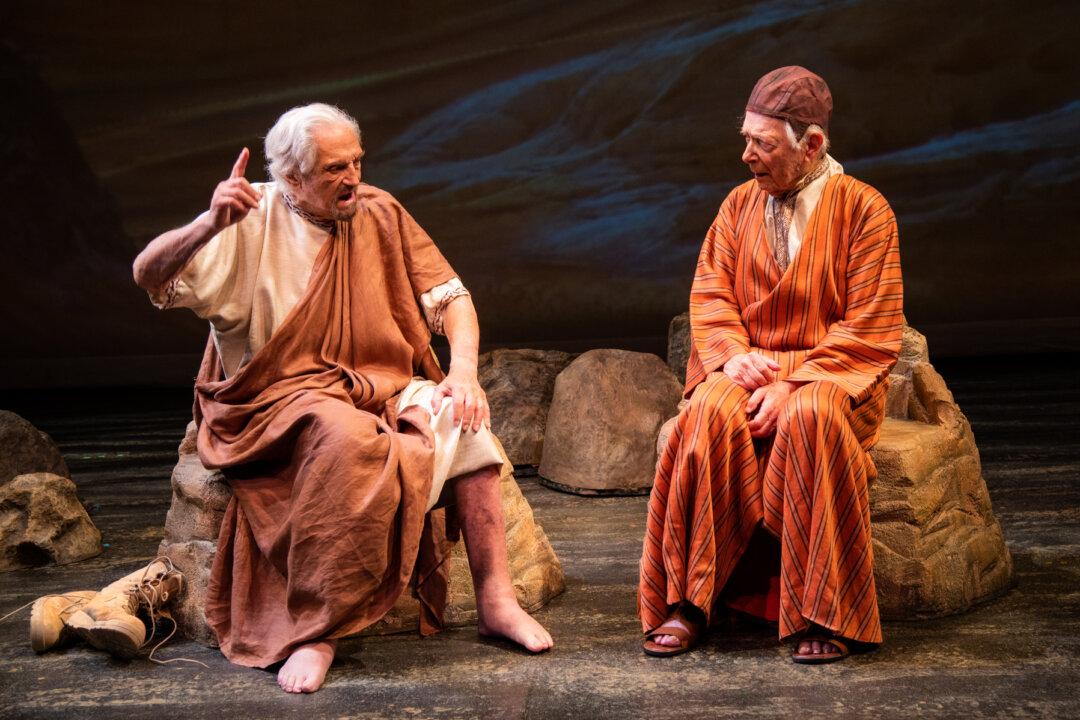NEW YORK—With a title that just begs for a punchline, “Two Jews, Talking” is exactly that. It’s also about two Jews kvetching, debating, discussing, questioning, and eventually being able to find a common ground in a changing world. This two-person, two-scene, world premiere comedy by Ed. Weinberger perfectly fits the term “lightweight,” yet still carries its own special sparkle, thanks to the power of cast members Hal Linden and Bernie Kopell.
Part 1 takes place in the year 1505 B.C. during an afternoon rest stop in the Sinai Desert. It’s on a Tuesday, to be exact, a day of the week when, according to Lou (Linden), nothing important ever happens. Lou, a former contractor to King Ramses’ second cousin, is sick and tired of having to wander in the desert with the rest of the Jews for the last 30 years as they wait for God to lead them to the promised land.





